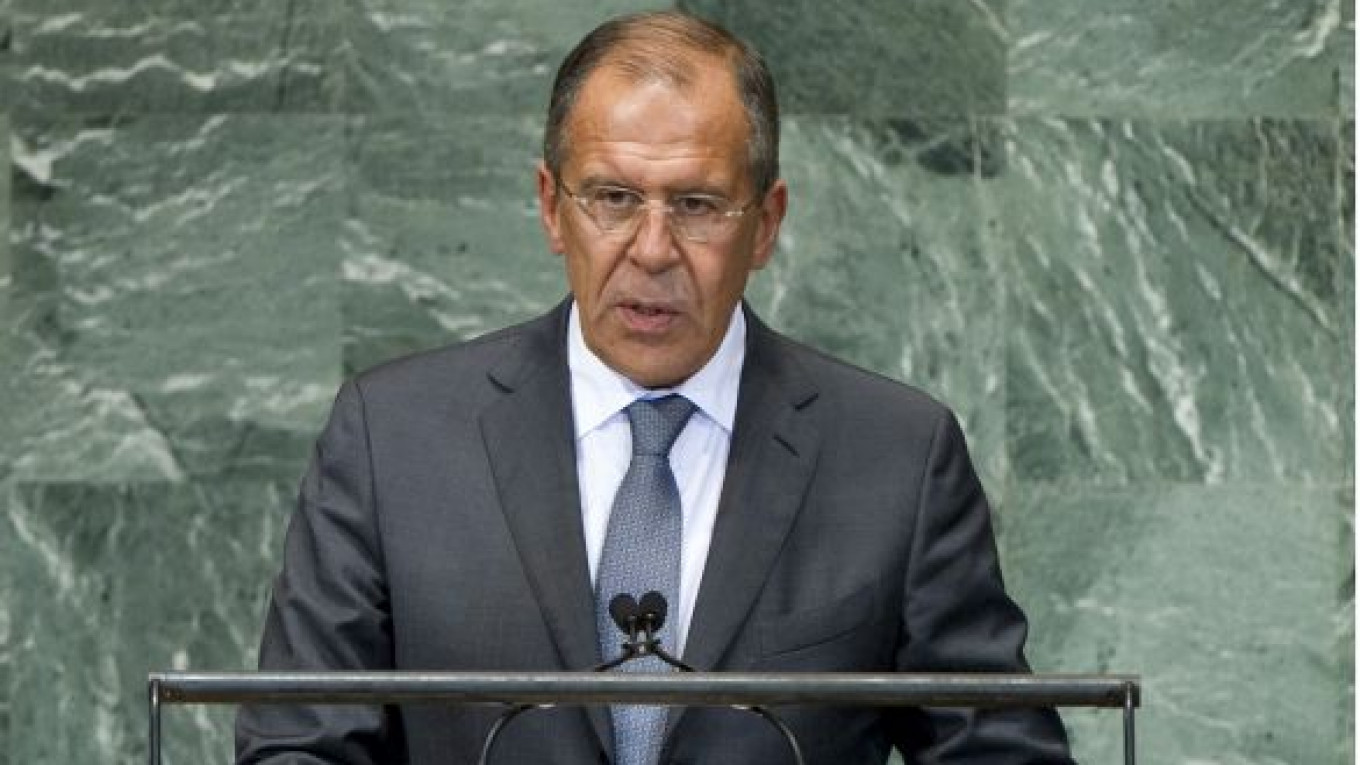The European Union might be dragging out the possible cancellation of the visa regime with Russia, since the main reason this goal can’t be reached could be of a political nature, Foreign Minister Sergei Lavrov said Monday.
“We have a feeling that … the reasons on the side of our partners from the European Union are not of a technical or administrative nature,” he said at a meeting with the leaders of the Association of European Businesses. “The information is coming to us that the main reason is political,” he said without specifying the sources.
Lavrov suggested that delays in making the final decision on lifting visa requirements might be based on the “solidarity principle” in the European Union and that introducing a visa-free regime with Russia before lifting visa regulations between the European Union and the countries in the EU neighborhood, like Ukraine, Armenia and Georgia “might be politically unacceptable.”
“If this is so, it is a purely politicized approach that does not take into account what Russia has actually done to ensure the safety of a visa-free regime and is based exclusively on political feasibility,’ he said.
He said that he plans to discuss the issue at a meeting with his counterparts from the EU countries that will take place in Luxembourg next week, and he hopes they will dispel any doubts about their motives.
Meanwhile, Soren Liborius, a spokesman for the EU delegation in Russia, described such assumptions as groundless, saying making travel across the boarders easy for both Russians and Europeans is critical for the bloc.
“We are working as fast as we can to advance the preparation for launching the talks on visa-free travel,” he said by telephone.
Lavrov said that upon request from Moscow, the European Union had provided a full list of problems Russia needs to resolve to facilitate the cancellation of the visa regime.
Based on that list, the sides agreed on mutual steps that should be taken to end the need for visas, including the introduction of biometric passports, combating illegal immigration and law enforcement cooperation.
“After that, there is nothing preventing us from sitting down and signing a simple and understandable agreement on introducing a visa-free regime for short-term trips for the citizens of Russia and the Shengen countries,” Lavrov said.
He insisted that Europe analyze the reasons why this goal can’t be achieved in the fastest possible way and said he hopes that the sides would sign an agreement on easing visa rules by Nov. 1,? an interim step before lifting the regulations completely.
Easing or canceling visa regulations is critical for boosting economic cooperation with the European Union, which remains the No. 1 trade partner for Russia, Lavrov said, adding that mutual trade had reached $400 billion last year.
Turning to business issues, he said Moscow is not satisfied with how the talks are moving on a new basic agreement between Russia and the EU, with the economic part of the document being the major sticking point, as Russia needs some time to get accustomed to being a member of the World Trade Organization. Russia became a WTO-member in August after an 18-year effort to join the trade bloc.
“Our partners want to get much more from Russia than what we agreed upon during accession to the WTO. That doesn’t suit us,” Lavrov said.
Europe’s Trade Commissioner Karel De Gucht criticized Russia in August over a number of restrictions in trade with the EU, like a ban on live-animal imports from Europe and utilization fees on imported vehicles.
Related articles:
A Message from The Moscow Times:
Dear readers,
We are facing unprecedented challenges. Russia's Prosecutor General's Office has designated The Moscow Times as an "undesirable" organization, criminalizing our work and putting our staff at risk of prosecution. This follows our earlier unjust labeling as a "foreign agent."
These actions are direct attempts to silence independent journalism in Russia. The authorities claim our work "discredits the decisions of the Russian leadership." We see things differently: we strive to provide accurate, unbiased reporting on Russia.
We, the journalists of The Moscow Times, refuse to be silenced. But to continue our work, we need your help.
Your support, no matter how small, makes a world of difference. If you can, please support us monthly starting from just $2. It's quick to set up, and every contribution makes a significant impact.
By supporting The Moscow Times, you're defending open, independent journalism in the face of repression. Thank you for standing with us.
Remind me later.


